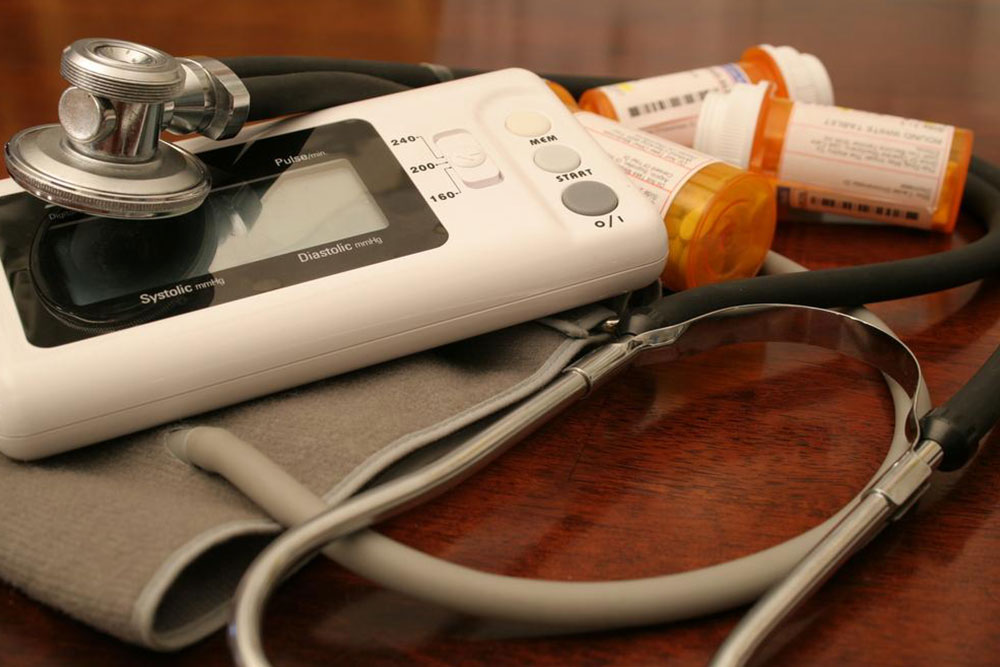Comprehensive Dietary Guidelines for Effectively Managing Hypertension
This comprehensive guide explores effective dietary strategies to manage hypertension effectively. It highlights key foods such as leafy greens, dairy, fruits, dark chocolate, seafood, and herbal teas, emphasizing their role in lowering blood pressure. The article stresses the importance of combining a balanced diet with lifestyle modifications like exercise and stress management for optimal results. Ideal for those seeking natural ways to control hypertension and improve cardiovascular health, this detailed overview offers practical tips and insights to support long-term blood pressure regulation and overall well-being.

Essential Nutrition and Lifestyle Tips for Controlling High Blood Pressure
High blood pressure, medically known as hypertension, is a common health concern affecting millions worldwide. It occurs when the force of blood pushing against the walls of your arteries rises beyond normal levels, creating stress on your cardiovascular system. Persistent hypertension can lead to severe health complications such as heart attacks, strokes, kidney failure, and even vision impairment. Despite often being symptomless, managing hypertension effectively is crucial to maintaining overall health and preventing these serious conditions.
Hypertension is categorized into primary (essential) and secondary types. The primary form accounts for the majority of cases and is mainly caused by lifestyle factors and genetic predisposition. Secondary hypertension results from underlying health issues, including kidney disease, hormonal imbalances, or medication side effects. Regardless of the type, adopting a comprehensive approach that includes dietary changes, physical activity, and lifestyle adjustments can dramatically improve blood pressure control.
While antihypertensive medications are vital for many individuals, combining medication with a healthy diet enhances treatment outcomes and addresses root causes. Proper nutritional choices can significantly influence blood pressure levels, improve overall vascular health, and reduce dependence on medications over time. Here are the most effective foods and dietary strategies to incorporate into your daily routine for optimal blood pressure management:
Leafy Green Vegetables: Dark, leafy greens such as spinach, kale, Swiss chard, broccoli, mustard greens, and beet greens are powerhouse sources of potassium. Potassium is essential for counteracting sodium's effects, encouraging the excretion of excess sodium through urine, and relaxing blood vessel walls. Regular intake can significantly lower systolic and diastolic blood pressure. Incorporate these vegetables into salads, smoothies, or steam them for a nutritious side dish.
Dairy Products: Low-fat yogurt, milk, and cheese provide vital minerals like magnesium, calcium, and potassium, each playing a role in regulating blood pressure. Studies have shown that consistent consumption of dairy can reduce hypertension risk by approximately 20%. Opt for low-fat options to minimize saturated fat intake, and consider fortified dairy for added health benefits. Including a daily serving or two can help maintain healthy blood pressure levels.
Fruits Rich in Potassium: Fruits such as bananas, berries, oranges, apples, mangoes, and avocados are naturally high in potassium. These fruits are delicious, versatile, and easy to include in your diet. Potassium-rich fruits help balance electrolyte levels, promote vasodilation, and reduce the stress on your arterial walls. Aim for at least four to five servings of these fruits daily to optimize blood pressure control.
Dark Chocolate: High-quality dark chocolate with at least 70% cocoa content contains flavonoids, which have antioxidant properties that support cardiovascular health. Flavonoids improve endothelial function and promote vasodilation, leading to lower blood pressure. Consume in moderation—about 1 to 2 small squares daily—to enjoy the benefits without excessive calorie intake.
Seafood: Rich in omega-3 fatty acids and high-quality protein, fatty fish like salmon, sardines, mackerel, and trout are excellent dietary choices for hypertension management. Omega-3s have anti-inflammatory properties and help improve blood vessel elasticity, thereby reducing blood pressure and lowering the risk of cardiovascular diseases. Incorporate seafood into your meals at least twice a week for best results.
Natural Juices: Unsweetened pomegranate juice and beetroot juice are natural superfoods for blood pressure regulation. Pomegranate juice is loaded with antioxidants that help improve arterial flexibility, while beetroot juice contains nitrates that are quickly converted into nitric oxide—an agent that relaxes blood vessels and lowers blood pressure rapidly. Drinking a glass of these juices daily can help maintain optimal blood pressure levels and support overall heart health.
Healthy Oils: Extra virgin olive oil and sesame seed oil are excellent additions to a hypertension-friendly diet. Olive oil, rich in polyphenols, has anti-inflammatory and vasodilatory effects, while sesame oil contains unique compounds that help balance sodium and potassium levels. Use these oils in salads, dressings, or for light sautéing to enhance your heart health and blood vessel function.
Hibiscus Tea: Known for its vibrant color and distinctive flavor, hibiscus tea is a natural herbal remedy for lowering blood pressure. Several studies show that regular consumption can significantly reduce systolic and diastolic measurements, even among diabetics. However, it's advisable to limit intake to avoid possible liver stress or interactions with certain medications. Enjoy a cup of hibiscus tea as part of your daily routine for vascular support.
In addition to dietary modifications, maintaining a physically active lifestyle, managing stress through relaxation techniques, avoiding tobacco, and limiting alcohol intake are vital components of comprehensive hypertension management. Combining these lifestyle practices with a balanced diet can enhance vascular health, reduce medication dependence, and improve overall quality of life. Always consult your healthcare professional before making significant changes to your diet or health regimen, especially if you have underlying health conditions.





